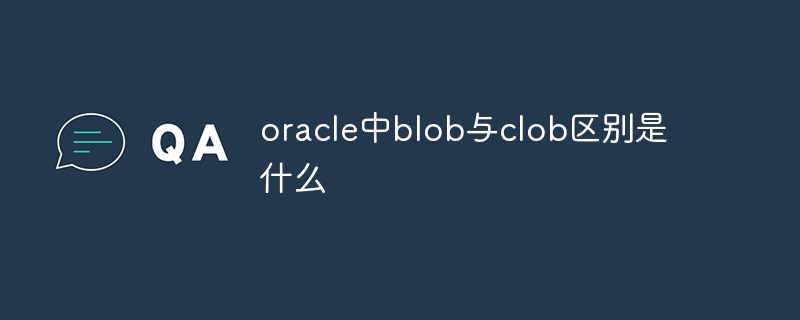
The difference between blob and clob in oracle is: 1. BLOB is used to store binary data, while CLOB is used to store text; 2. BLOB is called binary large object, and the maximum size that can be stored is 4G Bytes, and CLOB, which stands for Character Large Object, does not support character sets with different widths, and the maximum size that can be stored is 4G bytes.

The operating environment of this tutorial: Windows 10 system, Oracle version 19c, Dell G3 computer.
What is the difference between clob and blob in Oracle
BLOB is used to store binary data, while CLOB is used to store text.
1.BLOB
BLOB stands for Binary Large Object. It is used to store large binary objects in databases. The maximum size that can be stored is 4G bytes
2.CLOB
CLOB stands for Character Large Object. It is similar to the LONG data type, except that CLOB is used to store large single-byte character data blocks in the database and does not support character sets with varying widths. The maximum size that can be stored is 4G bytes
BLOB and CLOB are both large field types. BLOB is stored in binary, while CLOB can directly store text. In fact, the two are interchangeable. , or you can directly replace these two with BLOB fields.
But in order to better manage the ORACLE database, information such as pictures, files, music, etc. are usually stored in BLOB fields. The files are first converted into binary and then stored in them. For articles or longer texts, use CLOB to store them, which will provide great convenience for future queries, updates, storage and other operations.
The above is the detailed content of What is the difference between blob and clob in oracle. For more information, please follow other related articles on the PHP Chinese website!




